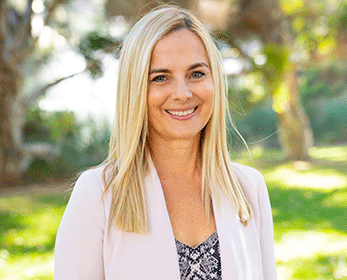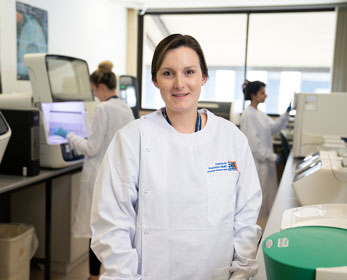Research on Immunotherapy and Melanoma and facilitating early identification of osteoporosis are among the winning ideas granted funding for further development by the 2023 WA Near-miss Awards (WANMA).
Four of Edith Cowan University's (ECU) early-and mid-career researchers were awarded national grants of $100,000 to accelerate the success of their innovative research ideas.
The awards may be comically named but winners are seen as serious contenders in the future of health research and innovation. The grants provide real recognition for researchers who only narrowly missed out on a highly sought-after National Health and Medical Research Council (NHMRC) Ideas grant.
- Dr Jumana Abu-Khalaf from ECU's School of Science was awarded for research on: Determination of bone mineral density from a hand radiograph: Facilitating early identification of osteoporosis which aims to combine hand X-ray imaging capabilities of standard equipment that is widely available and accessible in hospitals and state-of-the-art artificial intelligence for pre-screening postmenopausal women that are at risk for osteoporosis.
- Dr Catherine Bondonno from ECU's Nutrition & Health Innovation Research Institute was awarded for research on: Pardon the vegetables: how nitrate source determines health impact, which aims to understand the role of dietary nitrate in human health.
- Dr Amir Razamjou Chaharmahali from ECU's School of Engineering was awarded for research on: Transdermal delivery of lithium for bipolar disorder treatment, which aims to develop an advanced and economical system called Li-patch. This innovative system is designed to release lithium gradually, ensuring a consistent and low dosage over an extended period. By providing prolonged and steady drug levels, the Li-patch reduces non-compliant behaviours and minimises the negative effects associated with oral administration.
- Dr Pauline Zaenker from ECU's Centre for Precision Health and School of Medical and Health Sciences was awarded for research on: Autoantibodies as Biomarkers of Response to Immunotherapy and Onset of Immune-related Adverse Events in Cutaneous Melanoma Patients, which aims to develop a blood test to guide treatment decisions for patients with late-stage melanoma, the most deadly type of skin cancer.
The WANMA Ideas Grants 2022-23 program awarded 12-month grants of $100,000 to 23 early-and mid-career researchers from a total funding pool of $2.3 million provided to the WA health and medical research sector.
The program is funded by the State Government's Future Health Research and Innovation (FHRI) Fund. Minister for Medical Research Hon. Stephen Dawson said WA was already home to some of world's leading researchers and innovators and over the next decade we will see some amazing advances in home-grown research and innovation.
"Congratulations to the funding recipients announced - the champions of health and medical research and innovation for the future."

 ECU research innovations
ECU research innovations






